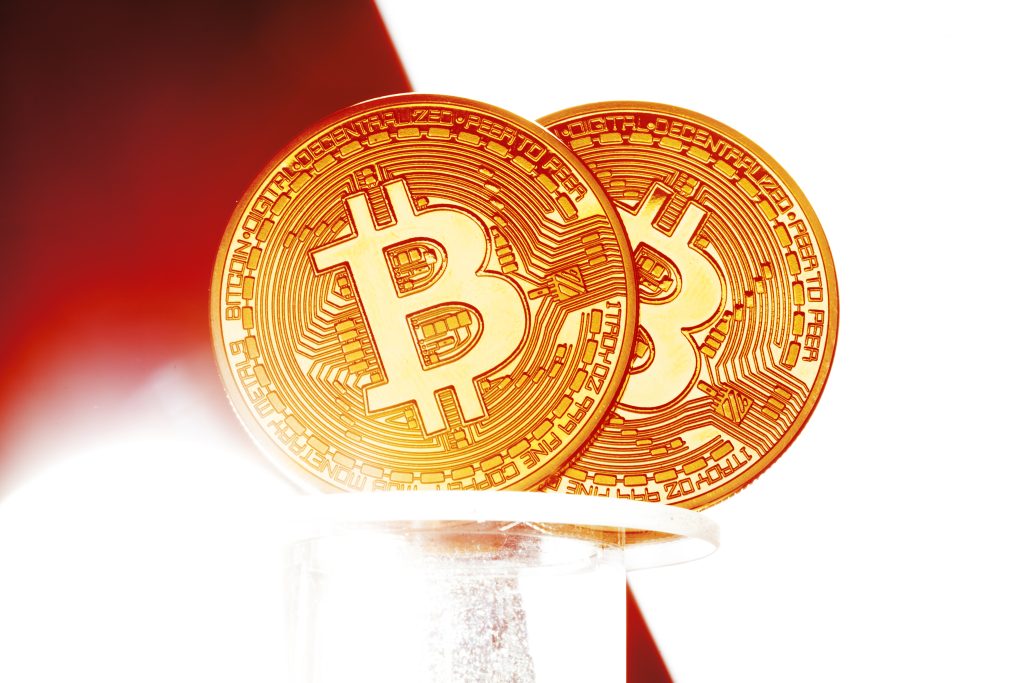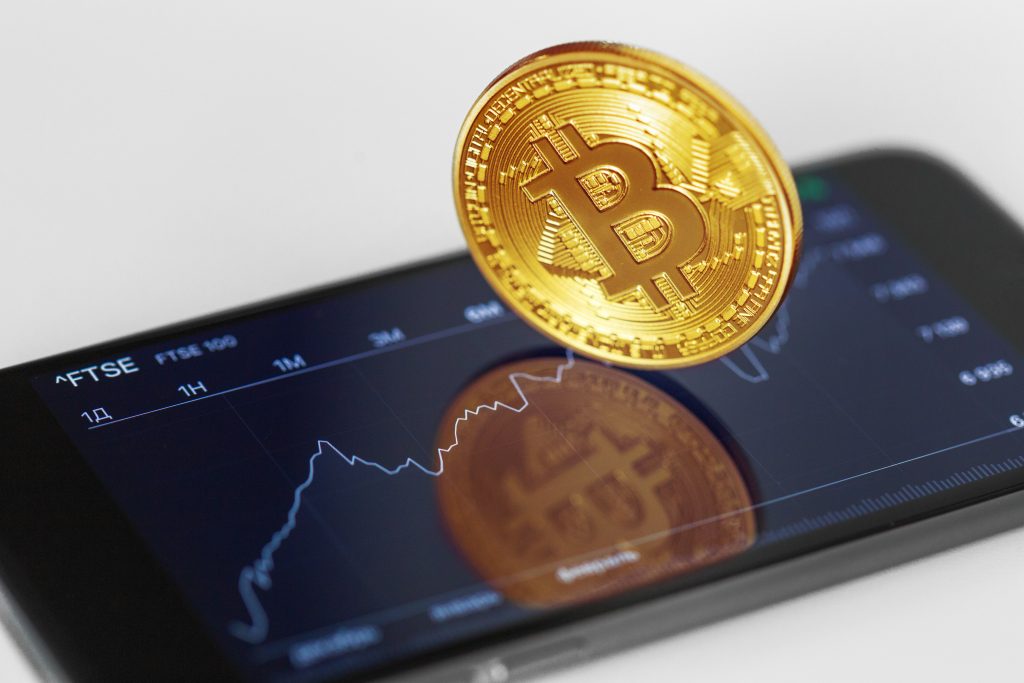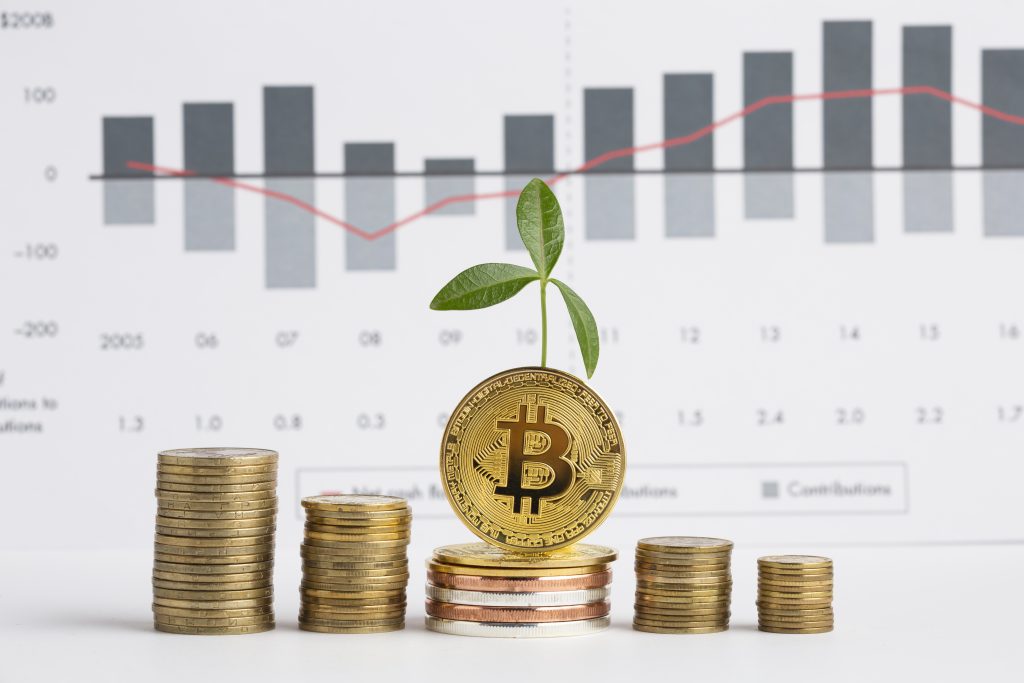BTC 101 – Everything You Need To Know About Bitcoin
Reading Time: 9 minutes

Imagine this: It’s a chilled day in your city. You’re taking a walk down the street alley, reminiscing on your past week—and someone walks up to you and asks: “Hey, quick question, can you tell me what you know about Bitcoin? I’m totally clueless.”
What would you say? Let’s take a wild guess.
“Well, Bitcoin is the world’s first and most successful cryptocurrency.” Then the person responds: “Oh nice! What else?”
Now, you scratch your head, wondering what to say…and then realize you actually don’t know what Bitcoin is all about.
Fear not.
In this article, we’ll take you through all you need to know about Bitcoin—so you can ace random Bitcoin questions anyone throws at you. Who knows, maybe you’d even get a reward next time. (side eye)
Ready? Now let’s dive in.
The History of Bitcoin
But first, let’s go on a history lesson.
Bitcoin was born from a pressing need for privacy, and its roots go as far back as the 1980s—during the cypherpunks‘ revolutionary movement.
The cypherpunks were a group of activists advocating for the widespread use of decentralized currency.
Since the internet was becoming global and borderless, the cypherpunks realized there was a need for a kind of money unique to cyberspace.
- Money that put everyone on the same pedestal, regardless of nationality or race.
- A global currency that was devoid of the government’s manipulation, dictatorship, control, and oppression.
The cypherpunks kept trying to develop a digital currency. Unfortunately, they couldn’t crack the network design meant to provide a completely decentralized mode of operation.
Bitcoin: The First Successful Cryptocurrency
Enter an anonymous developer (sometimes called a group) — Satoshi Nakamoto.
Sounds like the hero of the story, right? You’ll soon find out.
Satoshi had gained knowledge of the cypherpunk group and all it stood for. Not long after, he met the cypherpunks, and in the middle of the financial crisis in January 2009, Satoshi released Bitcoin to the world.
But then, what is Bitcoin?
Bitcoin is a decentralized network with its own cryptocurrency, which can be used to pay for goods and services, or as a store of value.
Confused? Don’t be. Let’s get out of the Bitcoin world for a second.
Think of local currencies: Dollars, Pounds, Yen, Euros, and others. They are printed, controlled, and managed “centrally” by the government and banks of their respective countries.
For Bitcoin, there’s no “central” authority. It is decentralized, global, and not controlled by any country or force. You don’t have to worry if banks are closed, it’s a public holiday, or at midnight. You can send and receive Bitcoin from anyone at any time of the day, and in any part of the world.
Using Bitcoin: How Does It Work?
Perhaps, you’re now feeling giddy and interested in using Bitcoin. What do you need to know? How does the entire thing work? Read on to find out.
Blockchain
A blockchain is like a database—with several verified blocks of transaction data, put together by users on the network. And because each verified block has a unique string of data from the previous block, they become linked into a “blockchain.”
Do you get it now?
Something tells us you don’t. (side-eye)
So, let’s break it down a notch further.
New “blocks” on the blockchain are formed when users, aka miners (more on that later), successfully verify a Bitcoin transaction. As a reward, they get newly minted Bitcoin.
This linking process helps secure the blockchain network and prevent any form of hacking or fraudulent activity. The blockchain network consists of several computer nodes spread across several users on the web.
Bitcoin Ledger
We won’t leave you, but think about it. The basic meaning of a “ledger” is a file/book containing all financial transactions of a particular individual, company, or entity.
Now let’s bring it back to Bitcoin.
A Bitcoin ledger is a record of all Bitcoin transactions on the Blockchain network. The Bitcoin ledger stores all information about all Bitcoin transactions on the Bitcoin blockchain. In addition, the ledger is open to the public—available for anyone to see.
Bitcoin Mining and Transactions

We can’t talk about Bitcoin mining without first talking about Bitcoin transactions. (talmabout the chicken before the egg conspiracy).
Transactions involves the sending and receiving of Bitcoin—among users on the Bitcoin network.
Wonder how Bitcoin is printed, managed, and controlled without a central authority? Bitcoin mining.
Remember how a network of users on the blockchain network are responsible for verifying all Bitcoin transactions? (scroll up this article if you need to remember).
Now, this verification process is usually a battle between various computer nodes across the world—-for whoever first verifies a particular transaction.
As a reward for verifying these transactions (usually a series of hard computational puzzles), successful users are rewarded with Bitcoin for every transaction they verify.
And that, our dear reader, is how Bitcoin is mined.
Bitcoin Block Explorer
Remember how we mentioned that the Bitcoin ledger keeps a record of all Bitcoin transactions—and how this is available for anyone to see? This is made possible with a Bitcoin explorer, enabling anyone to look into the Bitcoin ledger and track old or new transactions.
A Bitcoin block explorer is a tool that allows you to check all present and past data about a Bitcoin blockchain— including all transactions, blocks, addresses, and many more. The Bitcoin explorer is a crucial part that fuels the transparency of the Bitcoin network.
Popular Bitcoin explorers include:
- Blockchain.com
- CoinMarketCap
- Blockstream
- Blockcypher
- Blockchair
- Tradeblock
Bitcoin Wallets
If you must eat at a feast, you must have cutlery, right? And as a doctor about to perform a surgery, you must have your surgical equipment, yeah?
As a Bitcoin holder who wants to buy or sell Bitcoin, you need a Bitcoin wallet.
No, not your grandad’s old wallet. In this sense, a digital wallet.
A Bitcoin wallet helps you store your Bitcoin, and this is what enables you to send or receive Bitcoin. It’s just how a fiat bank account helps you hold your fiat. You gerrit?
Using Bitcoin: What Are the Perks?
Bitcoin does have its perks. After all, it can’t be the most successful cryptocurrency for nothing, right? Here are some of the numerous advantages of Bitcoin:
1. Borderless Payment Method
Being a borderless means of payment, you could be in China and choose to sell a particular service or product to an American. And instead of the American paying you in USD, he can pay you in Bitcoin— which you can then convert to Yen or whatever currency you have in mind.
No matter where you are, you can always send and receive Bitcoin, or use it as a payment method.
2. Transparency
Think about it, which fiat currency can you view transactions made by all holders of that currency? Bitcoin is fully transparent, allowing anyone to track transactions using a Bitcoin explorer.
3. Independence From a Central Authority
Imagine a type of money not printed by banks, managed by the government, or controlled by a central authority. That’s Bitcoin.
You can always carry out Bitcoin transactions, even on public holidays or at midnight. It’s not dependent on a body or particular entity to function. And this independence from a central authority frees it from inflation, hoarding, or any manipulation.
4. Inflation-Resistant and Tax- Free
Unlike fiat, which has unlimited circulation, only 21 million Bitcoins will ever be produced. This places a special value on Bitcoin, preventing the crypto asset from being unnecessarily inflated or printed. Also, no taxes are imposed on your Bitcoin whenever you buy or receive it.
Disadvantages of Bitcoin
1. High Volatility
Bitcoin trading or investing is not for kids, only for knowledgeable professionals.
Being a highly volatile crypto asset, investing in Bitcoin can be quite risky. Bitcoin’s volatility has wrecked many investors’ portfolios, while others have been smart enough to leverage its volatility and make some healthy ROI.
Bitcoin’s volatility also threatens its price, as several price fluctuations have occurred over the years. This makes Bitcoin unpredictable, and investing in it can prove risky.
2. Can Be Used To Fund Scams And Money Laundering
Because Bitcoin has no centralized authority controlling or regulating it, anyone can misuse or use it to fund dubious activities. No regulating body controls the amount of Bitcoin any individual can own, which is a big issue.
Investing in Bitcoin: What Do You Need To Know?
Often referred to as digital gold, Bitcoin can be invested and stored as an item of value. If you’re feeling up to it, and want to start investing in Bitcoin, here’s the first thing to note.
Define Your Risk Appetite:
Before you start investing, define the amount you’re willing to risk. Are you okay with investing a large sum? Or can you only stomach a little amount? A rule of thumb in investment is that you should only invest an amount you’re willing to lose, or an amount that doesn’t interfere with your day-to-day needs.
After defining your risk appetite, you can proceed to buy Bitcoin.
How to Buy Bitcoin: A Beginner’s Guide
You can buy Bitcoin on any certified crypto exchange platform. Once you have your cash in hand, follow these steps religiously.
1. Choose A Verified Crypto Exchange Platform
A crypto exchange platform allows you to invest in any cryptocurrency. Popular crypto exchange platforms include Binance, Coinbase, BitFinex, Kraken, etc. Many of these platforms also have wallets to help you store your crypto.
2. Fund Your Crypto Exchange Account With Fiat
The next step is to fund the crypto exchange platform with fiat. Most crypto exchange platforms come with a fiat wallet, enabling you to transfer money to the platform and buy your preferred cryptocurrency.
After doing this, you can proceed to buy Bitcoin.
3. Buy Your Preferred Amount of Bitcoin
Got some cash in your crypto exchange account? Good. Navigate to the crypto marketplace on the platform, search for Bitcoin, click on it, and input the preferred quantity you wish to buy. Voila! The Bitcoin will be deposited into your Bitcoin wallet on the platform.
Most crypto exchange platforms have wallets, but you can always transfer your crypto into another wallet.
How to Sell Bitcoin
Ready to sell your Bitcoin for fiat? Or into another crypto of choice? Then these are the steps to follow:
1. Choose A Verified Crypto Exchange
Like how you bought Bitcoin on a crypto exchange platform, you also need a crypto exchange platform to sell your Bitcoin.
Now, if you aren’t selling your Bitcoin on the same platform you bought it on, you’ll need to first transfer the Bitcoin to the Bitcoin wallet of the platform you plan to sell on. Got it?
Now onto the next step.
2. Connect Your Fiat Bank Account
Remember how you had to send money to the fiat wallet of the crypto exchange platform? Good. The same concept applies here. You’ll need to link a fiat account to receive fiat for your Bitcoin.
And for other crypto platforms, you’ll only have to send your bank account number to the buyer.
3. Transfer Your Bitcoin to the Crypto Exchange Platform
This step only applies if you’re selling Bitcoin on an exchange platform different from where you bought on. If so, you must transfer the Bitcoin to the selling platform first.
4. Sell Your Bitcoin for Fiat
Now it’s time to sell. If selling directly to the crypto exchange, navigate to the “market” or “sell section” to sell the Bitcoin for your preferred currency. If selling via p2p, navigate to the p2p section. Note that you’ll have to pay some tiny amount to cover gas fees to process the transaction.
5. Withdraw the Fiat Into Your Bank Account
After selling the Bitcoin, you can withdraw the fiat amount into your bank account.
Risks And Benefits Of Investing In Bitcoin
Like any good thing in life, Bitcoin does come with risks. It’s crucial for anyone looking to invest in Bitcoin to do diligent research and weigh their risk appetite before dabbling into the cryptocurrency. As a rule of thumb, only invest an amount you’re willing to lose.
1. High Volatility
Bitcoin being volatile can be a good thing, especially for smart traders or investors who know when to enter the market and when to exit. Plus, the more Bitcoin becomes widely adopted, the higher the value and the more money investors can make.
On the flip side, Bitcoin’s volatility can ruin an entire portfolio—if the investor or trader isn’t careful enough. Factors like news events or market demand and supply can lead to heavy portfolio losses
2. Market Uncertainty
Bitcoin can be unpredictable. In 2020, Bitcoin recorded an all-time high of over $68,500 per coin, making it the cryptocurrency with the most value then.
Bitcoin is currently grappling between the $28,000 and $30,000 price range. While it’s still the highest crypto, its price fluctuations can bring in colossal losses for investors. For example, those who bought Bitcoin at $68,500 are still in debt/losses until now. They’ll only recover when Bitcoin passes its market entry price point.
Bitcoin and the Future

It’s been a long ride since Bitcoin came to life in 2009, thanks to Satoshi Nakamoto. Since then, Bitcoin has gained widespread adoption and attention in the financial world. As we journey into the future, we expect Bitcoin and other cryptocurrencies to play a major role in the world’s economy. After all, the crypto market is estimated at $1 trillion.
Also, we should see more institutional and enterprise-level adoption of Bitcoin—beyond being used as a digital currency. Blockchain technology can be leveraged in the real estate industry, supply chain management, software protocols, etc.
However, this “future” does come with some challenges.
- Government regulation: For one, governments around the world keep trying to regulate cryptocurrency. And as we know, cryptocurrency’s idea is to free them from central authority. This possible government regulation poses a major threat to cryptocurrency and its growth.
- Scalability: As Bitcoin grows more popular and more users join the blockchain network, transaction times can become slower, with an increase in processing fees. Although systems are being built around this potential issue, their success remains uncertain.
Wrapping Up
By now, you should be able to confidently walk the streets and answer anyone that asks you random Bitcoin questions.
No doubt, Bitcoin holds great potential for the future. However, if you want to invest in Bitcoin, remember to always research and stay informed.
May the Bitcoin gods be kind to you. Adios!